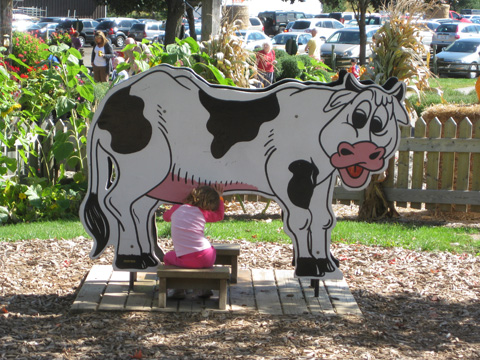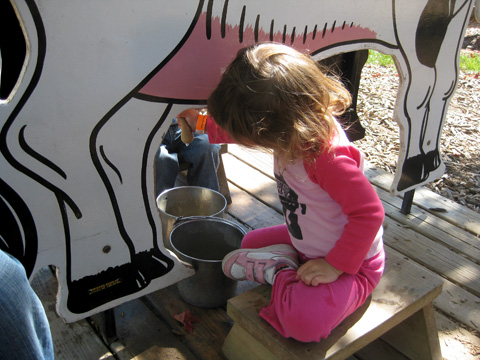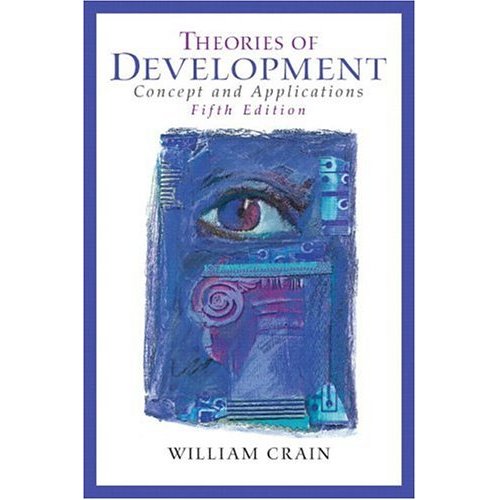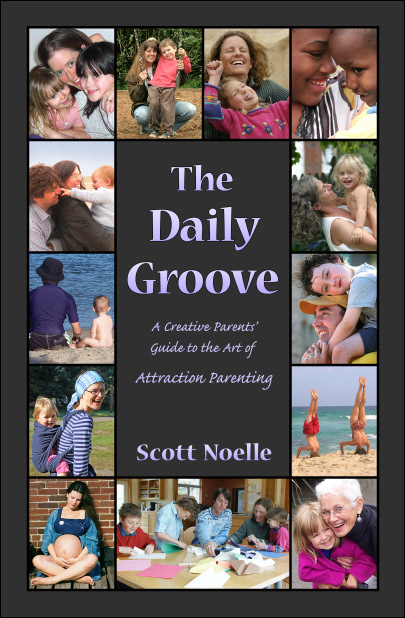Toddler Repetition Compulsion
Notice how kids can do certain things over and over and over again? We took Violet to a farm on the weekend with some other friends and we couldn’t seem to pull her away from milking this cow!
I try not to interfere with her natural and inherent need to do things repeatedly. After all she was doing very important work. She was perfecting the movement of squeezing and filling up the bucket with water again and again… and as much as I sometimes don’t understand it I really try to let her be when she gets into her repetition mode until she has enough. But, after an hour of standing around this cow, something had to give. There was more to see and do, not to mention there were other kids that wanted to ‘milk the cow’. Eventually, we pulled her away.
What a funny little phase kids go through! According to Dr. Maria Montessori it’s really important to not interfere with this natural need for repetition as she says (if my memory serves me) it gets in the way of a child’s character development. I can see that actually. Imagine you’re at the park and you’re on a mission to climb up a ladder and go down a slide and you’re having so much fun you want to do it again and again. Then, someone comes along and picks you up once you’ve gone down the slide and takes you to the swing, but you’re still thinking about the slide and were just getting into a rhythm. There’s a loss of concentration and power in what it was you were enjoying. There’s a bit of disappointment there, unless of course you really love swings.. 😉
So, what do you think, are we messing with character development when we interfere with our kid’s repetition compulsion?




